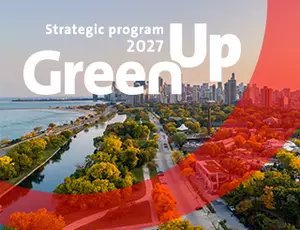Veolia, the global champion of ecological transformation, has published its first biodiversity report titled “Conserving and regenerating nature: from commitment to action”, coinciding with the COP16 biodiversity conference taking place in Colombia from October 21 through November 1, 2024.
Strongly committed to environmental stewardship
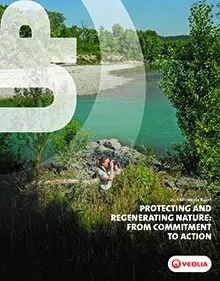
2024 Biodiversity Report
Veolia aims to become the benchmark company for ecological transformation by addressing the main challenges including climate change, pollution, resource depletion and threats to biodiversity. Through its decarbonization, depollution, and resource regeneration activities, the Group actively contributes to the preservation of natural environments and reduces pressures on biodiversity every day. After committing to the National Biodiversity Strategy launched by the French government in 2015 and integrating the preservation of natural environments into its multifaceted performance objectives in 2019, Veolia is building on this momentum with its first-ever comprehensive biodiversity report, detailing the Group’s efforts and targets for the future.
We have placed biodiversity at the heart of our multifaceted performance, by means of ecological management standards, action plans, and dedicated measurement indicators, which guide our strategy and day-to-day work
Estelle Brachlianoff, Chief Executive Officer of Veolia

Key biodiversity commitments
Depollution/Biodiversity KPI maintained in the multifaceted performance objective for 2024-2027 with a more ambitious targete
Act4nature international commitment renewed in March 2024 for a three-year period
A complete list of Veolia’s biodiversity commitments is detailed in the report
Decarbonization, depollution, and resource regeneration at the service of biodiversity protection
Leveraging the drivers of its new GreenUp 24-27 strategic program, Veolia’s activities help to substantially limit 3 of the 5 threats to biodiversity that are tied to human activities: overexploitation of resources, including water, climate change, and pollution of marine environments, air and soils1. Veolia also aims to transform the main sites it operates around the world into reservoirs of biodiversity, underscoring the Group’s dedication to sustainable environmental practices. This involves implementing dedicated action plans at sites located in areas with the greatest ecological potential and, more broadly, through the ecological management of the land on which the facilities managed by the Group are located.
Veolia’s activities help preserve biodiversity
Waste collection and treatment
To limit the spread of pollution into soils, water and the atmosphere
Wastewater treatment activities
To protect water resources from pollution and emit quality water into nature
The development of centralized district heating networks
To supply these networks and limit the environmental impact compared with more polluting systems
Production and marketing of recycled organic fertilizers
To help balance ecosystems
Our commitment to the protection of nature and biodiversity is reflected above all in our determination to accelerate the roll-out of our decarbonization, depollution, and resource regeneration solutions. Our operational excellence enables us to contribute locally to the restoration of biodiversity on industrial sites that we manage.
Sébastien Daziano, Senior Executive Vice President, Strategy and Innovation
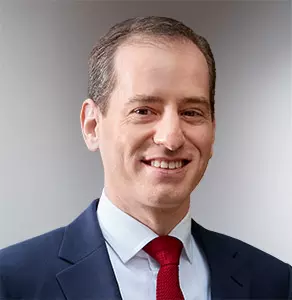
Supporting biodiversity with ecological solutions for Veolia’s customers
Veolia provides its public and private sector clients with its expertise in protecting local biodiversity. The Group deploys a range of ecological solutions tailored to the management of its customers’ industrial sites, for example:
- In the Czech Republic, where Veolia manages water facilities in Prague and has developed biodiversity hotspots on its sites, creating simple procedures for maintaining or restoring natural biotopes in cooperation with the Czech University of Life Sciences
- In Qatar, where Veolia maintains a forest at the Doha North Plant comprised of more than 90,000 trees from 28 species, in an area that has become a sanctuary for more than 30 species of birds
- In France, where employees at the Granges landfill site are implementing biodiversity protection and restoration measures, including rigorous regreening of the site by purchasing locally sourced seeds (certified “Végétal local”/”local plant”) and through a “hay transfer” project covering a 7-hectare area
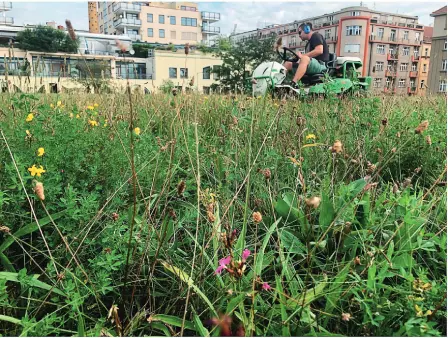
Key facts and figures
of sites managed by the Group have implemented ecological management, covering a 30,000 ha area
2023 result
of sites managed by the Group have implemented a “zero pesticides” policy
2023 result
2023 “Leadership” ratings from the CDP (in Climate Change and in Water Security)
2023 results
Group biodiversity correspondents tasked with implementing action plans to protect biodiversity on Veolia-operated sites
of sites managed by the Group will have implemented ecological management and a zero pesticides policy
2027 target
Veolia’s innovations for nature
In partnership with The Nature Conservancy, Veolia is implementing nature-based solutions to act on both climate change and biodiversity. The Group’s innovation program involves the development of nature-based solutions for managing the large water cycle, such as artificial wetlands.
In China, the Veolia-managed project on behalf of Asia’s leading oil company at its Beijing Yanshan site has achieved its objective of optimizing the quality of water being discharged into the environment. The creation of artificial wetlands has also provided habitats for local species, opened corridors for aquatic fauna, and regulated the water cycle. In addition, 2.7 hectares have been planted to allow improved water depollution through phyto remediation, and a further hectare for recreational purposes. More than 140 species have been identified to date, some of which are extremely rare, and the park welcomes over 500,000 visitors a year.
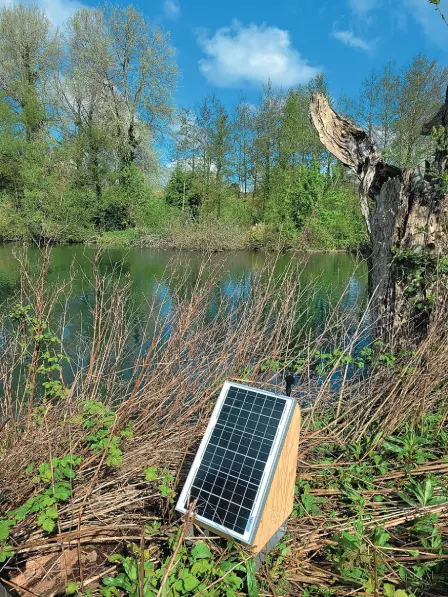
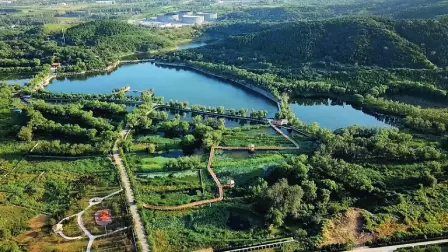
As biomonitoring offers real-time data acquisition at a significantly lower cost than conventional solutions, Birdz (a Veolia Group company) proposes a biomonitoring tool. The Leko sensor, the product of a partnership with the French National Museum of Natural History, can identify 87 animal species by their ultrasonic emissions. Leko operates autonomously thanks to its solar panels, which supply the energy for daily automatic data transmissions.
1 As identified by the IPBES, the Intergovernmental Science-Policy Platform on Biodiversity and Ecosystem Services, “the IPCC of biodiversity”



